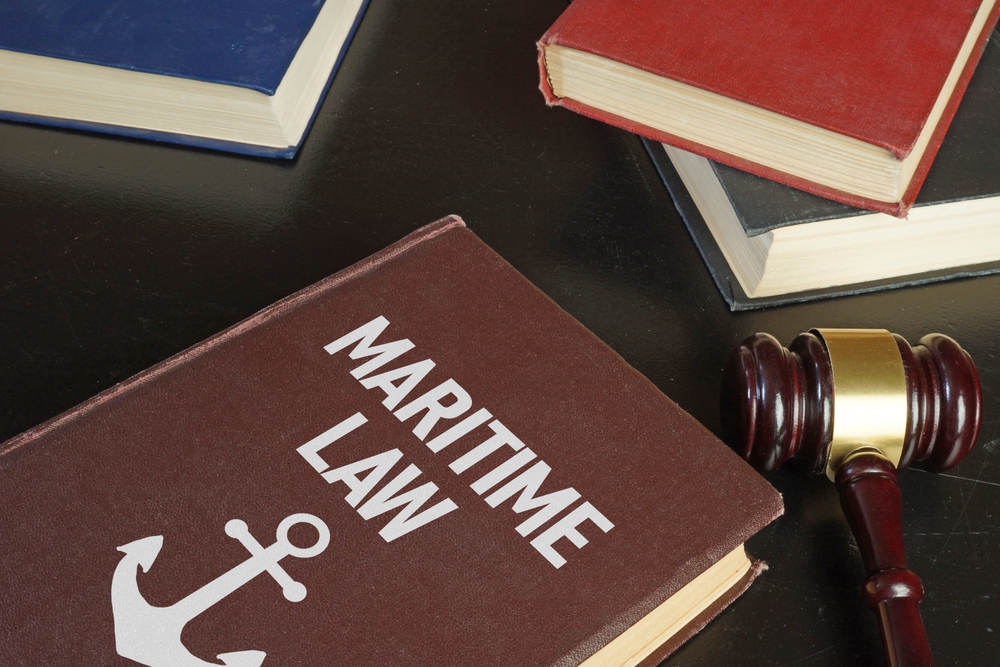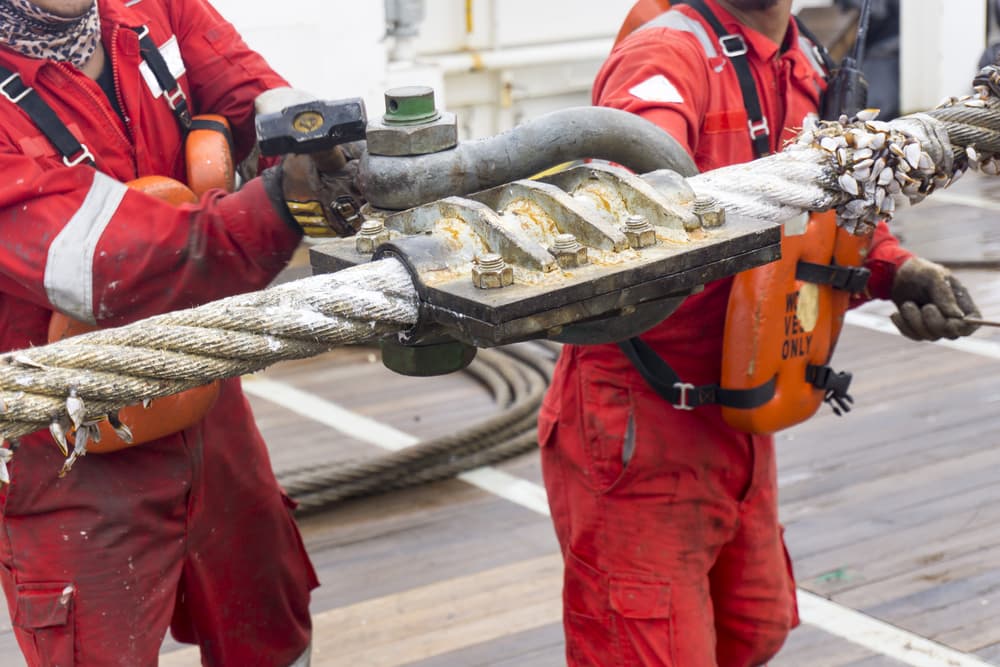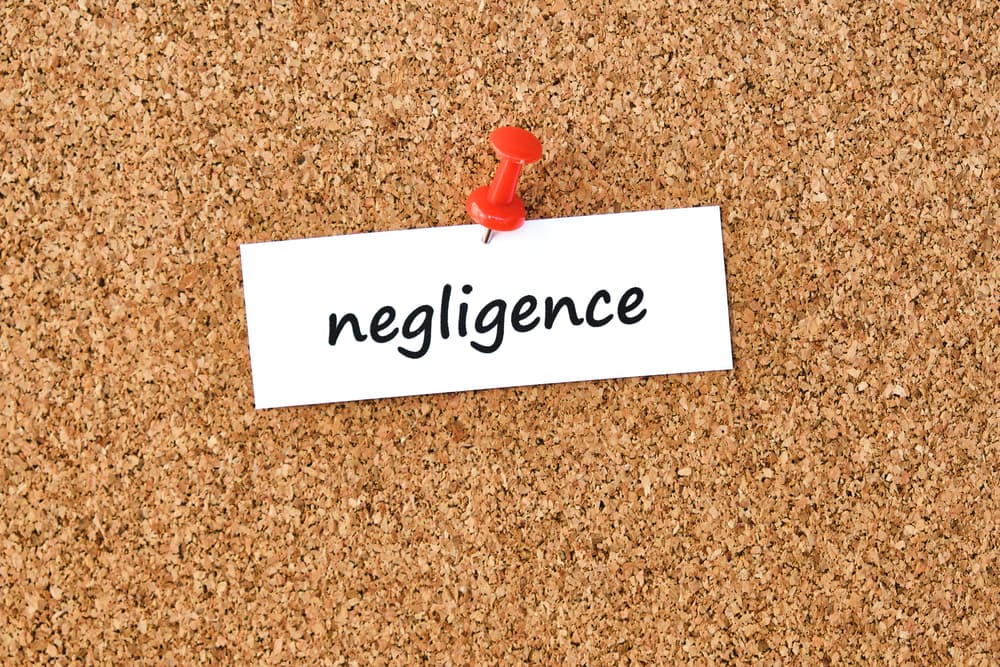Last Updated on December 12, 2024 by The Young Firm
The Gulf of Mexico is a bustling hub of maritime activity, teeming with vessels, rigs, and offshore platforms that play crucial roles in the oil, gas, and shipping industries. If you work as a seaman in this region, you’re part of an economic powerhouse. However, it’s impossible to overstate the risks you face daily.
Unfortunately, injuries to seamen in the Gulf of Mexico are common, and understanding the liability of vessel owners in such cases is vital for ensuring that you receive the compensation you deserve if you suffer an injury. The following will outline your rights as an injured seaman, explain the implications of these laws for your well-being, and highlight the need for a maritime injury lawyer.
The Jones Act and General Maritime Law

Two primary legal frameworks apply to maritime accident injuries: the Jones Act and general maritime law. These laws form the foundation for understanding your rights as an injured seaman and the responsibilities of vessel owners.
The Jones Act
The Jones Act is a federal statute granting you the right to sue your employer if you sustain injuries due to negligence. This law protects seamen like you, who are often exposed to dangerous working conditions on the high seas.
Under the Jones Act, you can file a lawsuit against your employer—typically the vessel owner or operator—if their negligence caused your injury. Negligence can encompass many actions or omissions, such as failing to provide a safe working environment, inadequate training, or defective equipment.
To qualify as a “seaman” under the Jones Act, you must spend a significant portion of your working time on a vessel “in navigation.” This means that the vessel must be afloat, operational, and capable of moving, even if it was docked at the time of your injury.
General Maritime Law
In addition to the Jones Act, general maritime law provides further protections. One of the most important doctrines under maritime law is the concept of “maintenance and cure.” This doctrine requires vessel owners to provide for your medical care (“cure”) and basic living expenses (“maintenance”) until you’ve reached maximum medical improvement (MMI). MMI means you’ve recovered as much as you’re going to recover. It can mean you’re well enough to return to work, or you either can’t go back to your previous job or can’t work at all.
Maintenance and cure are strict liabilities, meaning that you don’t need to prove negligence on the part of the vessel owner to receive these benefits. The obligation to provide maintenance and cure applies regardless of the cause of your injury, and vessel owners who fail to meet this obligation can face significant legal penalties.
Does the Vessel’s Unseaworthiness Apply to Your Case?
Another critical aspect of general maritime law is the doctrine of “unseaworthiness.” This doctrine holds vessel owners liable for injuries caused by an unseaworthy vessel condition. A vessel is unseaworthy if it’s not reasonably fit for its intended purpose or if the crew is inadequate or incompetent. Unlike the Jones Act, which requires proof of negligence, unseaworthiness claims don’t require you to prove fault.
The Liability of Vessel Owners in the Gulf of Mexico
The nature of your work, the types of vessels involved, and the potential hazards all contribute to the risk of injury. Understanding the liability of vessel owners in this context is essential for both your maritime injury lawyer and your employer.
Types of Vessels and Work Environments
The Gulf of Mexico is home to a diverse array of vessels, including oil rigs, drilling platforms, supply boats, tugboats, fishing vessels, and cargo ships. Each of these vessels presents its own set of risks, and the working conditions you face can vary significantly depending on the type of vessel and the nature of the work you perform.
For example, you may be exposed to hazardous materials, heavy machinery, and extreme weather conditions if you work on offshore drilling platforms. If you’re part of a supply boat crew, you might face the dangers of rough seas and heavy cargo. As a fishing vessel worker, you can encounter the risks of entanglement in fishing gear or exposure to harsh elements.
In each of these scenarios, the vessel owner has a duty to ensure that the vessel is seaworthy and that you and your crew receive adequate training and equipment to perform your duties safely. Failure to meet these obligations can result in liability for injuries you or your fellow seamen sustained.
Common Causes of Seamen Injuries

The maritime environment is inherently risky, and seamen sustain many injuries due to a vessel owner or operator’s negligence. Below are some of the most frequent causes of injuries among seamen, along with explanations of how these situations arise and what responsibilities vessel owners have in preventing them.
Slips, Trips, and Falls
The decks of vessels are often wet or oily, creating slippery surfaces that can easily lead to accidents. Unsecured equipment and poorly maintained walkways only exacerbate the risk. When walking across a deck that hasn’t been properly maintained, the chance of losing your footing increases significantly, which can result in anything from minor bruises to severe fractures or even head injuries.
Vessel owners must keep all walking surfaces safe. They must perform regular maintenance, clean up spills promptly, and secure equipment that might obstruct pathways. They must also put safety protocols in place, such as requiring non-slip footwear and adequate lighting, to help prevent these types of accidents. When vessel owners fail to meet these obligations, a maritime injury lawyer may hold them liable for injuries that occur as a result.
Equipment Failures
Whether you’re operating heavy machinery or relying on essential tools, properly functioning this equipment is critical to your safety. When equipment is defective or poorly maintained, it can malfunction, leading to severe injuries. For example, a crane with faulty cables can drop a heavy load, or a winch with worn-out gears can cause a sudden, violent movement.
Vessel owners must ensure all equipment aboard their vessels is in good working order. They must also properly train seamen to operate the equipment safely. Failure to do so can leave the owner liable for your damages.
Inadequate Training
Proper training is essential in any high-risk job, and working as a seaman is no exception. Inadequate training is a significant factor contributing to many maritime injuries. If you don’t receive proper training to handle specific tasks or operate certain equipment, the likelihood of an accident increases. This is particularly true in high-risk environments like offshore drilling platforms, where complex operations and heavy machinery are common.
Vessel owners must comprehensively train all crew members. This training should cover everything from basic safety procedures to the operation of specialized equipment. Training must be ongoing, with regular updates and refreshers to ensure all crew members are fully competent. If you suffer an injury because you didn’t receive adequate training, your maritime injury lawyer can hold the vessel owner liable under the Jones Act or general maritime law.
Rough Seas and Weather Conditions
The Gulf of Mexico is notorious for its unpredictable weather and rough seas, which can create dangerous working conditions. Strong winds, high waves, and sudden storms can all lead to accidents and injuries. For instance, rough seas might cause you to lose your balance and fall, or high winds can cause equipment to become dislodged or thrown across the deck.
The owner of a vessel must monitor weather conditions and take appropriate precautions to protect their crew. This might include altering the vessel’s course to avoid bad weather, securing equipment to prevent it from shifting, or even delaying operations until conditions improve. Failure to take these precautions can result in serious injuries, and vessel owners may face liability if they don’t do enough to protect their crew from the dangers of rough seas and adverse weather conditions.
Chemical Exposures
If you work on oil rigs or vessels that transport hazardous materials, you may be at risk of exposure to toxic chemicals. Chemical exposure can lead to a range of health issues, from respiratory problems to severe burns or poisoning. In some cases, long-term exposure can result in chronic health conditions, such as cancer or organ damage.
A vessel owner must take stringent safety measures to protect their crew from chemical exposures. These measures include the following:
- Providing proper protective equipment.
- Ensuring that seamen store and handle all hazardous materials safely.
- Offering training on how to deal with chemical spills or leaks.
Your maritime injury lawyer will work to hold the vessel owner liable for your medical expenses and other related damages if they failed to meet these obligations and you suffered an injury as a result.
Proving Liability Under the Jones Act and General Maritime Law

If you suffer an injury while working as a seaman, you can pursue compensation under the Jones Act or general maritime law. However, successfully proving liability in these cases can be challenging, as it requires a thorough investigation of your injury’s circumstances. A skilled maritime injury lawyer will work to help you get what you deserve by proving the following:
Negligence Under the Jones Act
To prove negligence under the Jones Act, your maritime injury lawyer must demonstrate that the vessel owner or operator failed to exercise reasonable care in providing a safe working environment. Doing so can show that the owner neglected to maintain equipment, ignored safety regulations, or failed to provide adequate training. Your attorney might also establish negligence if the vessel owner didn’t appropriately respond to known hazards, such as rough seas or toxic chemicals.
Unseaworthiness Under General Maritime Law
As you learned earlier, under general maritime law, your maritime injury attorney can also pursue a claim if they can prove the vessel was unseaworthy. A vessel is unseaworthy if it’s not reasonably fit for its intended purpose. Your maritime injury lawyer may work to show that the vessel had defective equipment, an incompetent crew, or other conditions that made it unsafe. Unlike the Jones Act, which requires proof of negligence, unseaworthiness claims do not require you to prove fault.
Maintenance and Cure
If you seek maintenance and cure benefits, your maritime injury lawyer must establish that your injury occurred while you were in service to the vessel. You don’t need to prove negligence or unseaworthiness to receive these benefits, but your attorney must show that your injury was work-related. Again, maintenance and cure benefits cover your medical expenses and basic living costs until you reach maximum medical improvement.
Defenses and Limitations on Vessel Owner Liability
While your maritime injury lawyer can hold the vessel’s owner liable for your injuries, there are certain defenses and limitations the opposition may raise in response to your claim. These defenses include:
The “Open and Obvious” Doctrine
The defense may argue that the danger that caused your injury was “open and obvious,” meaning that you should have been aware of the risk and taken steps to avoid it. This defense can limit or eliminate the vessel owner’s liability if successful.
Statute of Limitations
If you suffer an injury in the Gulf of Mexico, you have a limited time to file a claim under the Jones Act or general maritime law. Jones Act claims typically have a three-year statute of limitations. If you don’t file your claim within this period, which is three years from the date you suffered your injury, the court may bar you from pursuing compensation.
The Importance of Legal Representation

Given the complexity of vessel owner liability for seamen injuries, you must seek legal representation from an experienced maritime injury lawyer. A skilled attorney can help you navigate the legal process, gather evidence, and build a strong case for compensation in the following ways:
Investigating Your Injury
One of your maritime injury attorney’s most important roles is thoroughly investigating your injury. This may involve gathering witness statements, reviewing maintenance records, and consulting with experts to determine the cause of your injury and whether the vessel owner was negligent or the vessel was unseaworthy.
Negotiating with the Vessel Owner or Insurance Company
Maritime attorneys are skilled negotiators who can advocate on your behalf in negotiations with the vessel owner or their insurance company. They can help ensure you receive fair compensation for your injuries, including medical expenses, lost wages, and pain and suffering.
Pursuing Litigation
Your maritime injury lawyer can take your case to court if the insurer fails to settle. Litigation can be complex and lengthy, but an experienced attorney can guide you through every step, from filing the initial claim to presenting evidence at trial.
Talk To An Experienced Maritime Injury Attorney Today
Find out more about how a legal professional can help by contacting a maritime injury lawyer for a free case review.

